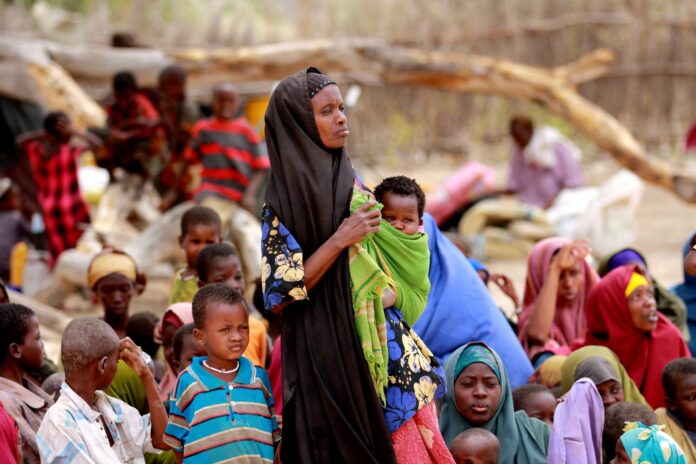MOGADISHU (KAAB TV) – Humanitarian workers in Somalia are confronting an increasingly perilous environment as they strive to provide crucial assistance to those in need. A recent report from UNOCHA Somalia sheds light on the daunting challenges faced by aid organizations, including threats, killings, kidnappings, extortion, and interference against their operations.
In one tragic incident, three humanitarian workers lost their lives during their duties, including a female nurse who fell victim to a coordinated attack by Al-Shabaab on the Pearl Beach Hotel and Restaurant in Abdiaziz district, Mogadishu, on 8 June.
“As for Quarter 1 2023 (January to March), in Quarter 2 (April to June) humanitarian access in Somalia continued to present significant challenges. Humanitarian partners operating across the country reported a total of 66 access incidents,” OCHA Somalia said in its July bulletin.
Moreover, nine humanitarian workers were abducted in separate incidents – two in Southwest State on 23 June and another in Hirshabelle State on 5 June. The perpetrators behind these abductions, believed to be Al-Shabaab, have not disclosed their motives. In response, local elders have taken the initiative to negotiate the release of the abducted workers, and so far, five have been freed under undisclosed terms and circumstances.
On Tuesday this week, Médecins Sans Frontières (MSF), also known as Doctors Without Borders, suspended its activities at Laascaanood General Hospital due to escalating violence and recurrent security incidents, compromising the safe delivery of medical care.
Numerous factors contribute to the impediments faced by humanitarian agencies, including movement restrictions imposed due to military operations, bureaucratic hurdles, interference in humanitarian activities, politically driven decisions, and internal security concerns.
The humanitarian situation in Somalia is dire, with approximately 8.25 million people – half of the population – urgently requiring humanitarian assistance. The nation also faces acute food insecurity, with 6.6 million people affected, and 1.8 million children are at risk of acute malnutrition throughout 2023.
As the humanitarian crisis deepens, obstruction, threats, and interference against aid groups continue to hinder their operations across the country. Perpetrators of these violations remain powerful and unchecked.
Authorities in Puntland suspended the operations of ten humanitarian agencies, alleging a lack of cooperation and information sharing, violation of the NGO Act, and unregistered activities. Advocacy efforts eventually led to the resumption of these agencies’ activities. Similarly, two other humanitarian organizations encountered challenges in providing relief assistance to displaced people in the western part of Laascaanood town in Sool region after Somaliland authorities refused to grant sub-agreements.
Some reported incidents result from a lack of understanding of humanitarian operations and unfamiliarity with the principles guiding their work. This has led to misunderstandings with local authorities, communities, and beneficiaries. For example, in Waraabeeye village, Burco district, an individual opened fire at an NGO site, suspending the beneficiary registration process and demanding inclusion in the registration list. In Doolow district, Jubaland State, humanitarian organizations faced 11 new requirements issued by newly appointed staff in the District Commissioner’s office.
Southwest State experienced the highest number of reported incidents, with four recorded, followed by Puntland and Banadir with two each. Additionally, incidents were documented in Galmadug and Jubaland. In total, ten violent incidents against humanitarian workers were reported, including abductions, carjackings, damage to humanitarian assets, and threats against personnel.
Five additional incidents involving threats against humanitarian workers were documented in various regions, including Luuq district, Jubaland, where clan militia attacked a humanitarian facility, warning workers against fieldwork. In Baardheere district, Jubaland, armed individuals opened fire on aid recipients at a humanitarian distribution facility within the fitteen IDP camp. Fortunately, no casualties were reported in these incidents. In another case, a vehicle rented by humanitarian actors was intercepted in Buuhoodle district, Sool, but the driver was later released, and the vehicle returned.
As Somalia grapples with complex challenges, including security and political turmoil, governance issues, and clan rivalries, the humanitarian crisis worsens, further compounded by the obstruction, threats, and interference faced by aid groups.


